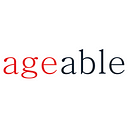I’ve just spent 2 days up in. Newcastle with Care Citys Emily Brook as part of sharing our work and getting some great minds having the potential to work with us.
Our talk was a small workshop with people to give them an immersive experience of how it might look and feel t be part of the workshops with us.
The ways we’ve been building relationships back into peoples lives. The research and co-design listening to the truth and vulnerability of peoples stories will stay with me far longer than the work here. These people matter, more than we can possibly know, and are too often forgotten about until they meet at a point of crisis. They have been consistently being met by services and systems that could not work with them in the deep and holistic ways that people needed. We’re trialing something radically innovative through connecting with VCE sector to work in a truly relational & bespoke way.
If you’d like to speak to us to get the longer talk around this work — Or are looking to explore how we might collaborate or share learning — please do reach out. We’d love to speak to you and we’re looking for new collaborations.
Care City Emily Brook Elspeth Paisley
My key reflections from the conference were from Robert Green’s talk on complexity: “Between order and disorder is complexity.” It was a reminder that while our histories have been made up of ordered events, we now live in an incredibly complex time with complex systems, services, and historical contexts. We know this from our own work!
What we can consider along the way is: “Are there still places where people can have continual learning, experimentation, modesty, testing, and truth?”
Emily Burn and Catherine Needham from the Centre for Care shared their work on “Influencing the Social Care Ecosystem.” They discussed the beginnings of their research, which will explore the impacts of some changes in the care ecosystem and how these might affect the social care ecosystem.
They reminded us about the many interdependencies, complexities, and emergent properties of social care ecosystems. They used an example to illustrate how some local authorities are reducing their home care provision by half, which will have a significant impact on the wider ecosystem. They spoke about moving from a procurement model to a partnership model, where the wider ecosystem can thrive.
Hannah Hesselgreaves spoke about how they have been building the Human Learning Systems Evaluative Capacity from the Changing Futures team, and how we need to move from:
- Service Oriented: The role of agencies
- Problem Oriented: The role of diagnosis or policy themes
- Life Oriented: The role of relationships.
We then heard from Prof. Matt Baille Smith. He discussed the invisible economies of engaged research, sharing some really truthful and powerful commitments about the role of academia.
For me, his most powerful question was, “How do we help ordinary folks be part of change?” He had a real self-awareness about how we need to do a lot more cross-sector working and recognize our power in the places we are working in.
We then heard from Samantha Mague from the National Lottery. She spoke about the language and framing they’ve moved from and to. Now, they are co-missioning and giving organizations more trust and flexibility to handle the complexity and capability needed to achieve our goals through a shared, collaborative, and equal way of working together with a common co-mission. This is crucial as things often change halfway through a project.
Moving from a competitive market to having a business that can deliver a purpose, the best people do deliver the best possible results as they are also closer to the issues.
I also attended some digital sessions one was led by Albert Aman (Northumbria University) explored the impact of digital social innovations on enhancing healthcare accessibility and quality. I loved Professor David Wainwright’s and Rebecca Caseys talk on Buddhist principles and how we can work together, especially learning from events like the post office scandal. People are right to be afraid of technology.
We also had some time with Alison Bancroft from Redport about the collaborations she’s been working on.
The challenges we are finding in this hard work of designing with people collaboratively are significant — we must constantly checking in with our projects and our work.
Some inspiring and positive, and some bringing much-needed critical questioning towards the ways that technology can/might be used in the future. We must bring our critical eyes to new tech and must not trust all technology blindly. My favourite question around technology is: Technology is probably the answer to most things these days, but what was the question? We need to design with a clear and necessary question that will make a difference in people’s lives.
I was sad to hear there is still so much division between health and social care, it’s soo needed.
#buildingrelationshipsbackin #designforcare
